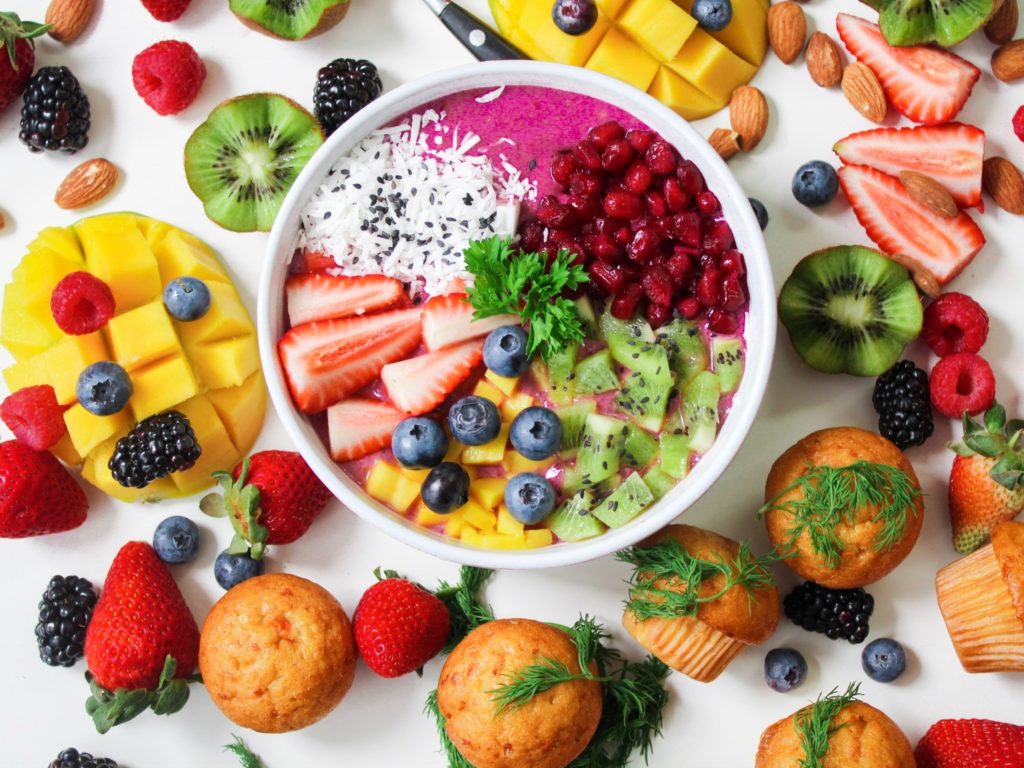
1. Fruit is very healthy
Fruit is really healthy. It is a source of vitamins, minerals, antioxidants, healthy sugars, fiber. Fruits and berries are included in a healthy dish on the recommendation of both the WHO and the Ministry of Health. Their norm in a balanced diet is up to 350 g.
2. Fats make you fat
They recover not from specific food, but from its excess. It is easier to do this from an excess of fat – they are the most high-calorie nutrient, 1 g = 9 kcal. Therefore, you need to monitor not only the quality of fats in the diet, but also their quantity.
3. There are products for burning fat
There are no such products. There are simply low-calorie foods. Physical activity burns fat.
4. Low-fat dairy products are good
Absolutely not! This is a marketing ploy. Just pay attention to the calorie content of low-fat kefir and medium-fat kefir. There will be a very minor difference. Milk fat is a natural preservative. If you remove it, you need to add another preservative. Starch is the most harmless of these, and it’s also a carbohydrate (read: extra calories). And then, low-fat dairy products are tasteless. Buy medium-fat dairy products.
5. Proper nutrition is not tasty
This is the opinion of those who believe in fresh, uniform and tasteless PN)) healthy food is a variety of products. And you can use any natural herbs or spices. To your health!
It’s just that flavor enhancers, excess sugar and cooking fats “clog” the taste buds, and initially simple food may seem tasteless. But the good news is that receptors can be cleared as the diet is normalized.
6. Coffee is bad
Excess or poor quality – yes. But natural coffee in small quantities is even healthy. Here are the proven facts: Moderate (!) Drinking coffee (that’s 2-5 servings a day, but let’s stop at two) reduces the risk of cardiovascular disease by about 15% (however, more frequent drinking of coffee did not in any way reduce these risks), and:
Reduces the risk of diabetes by 22%
Significantly Reduces the Risk of Alzheimer’s and Depression
Reduces the risk of liver cancer
Increases the activity of dopamine receptors in the brain, which makes people more focused and happy
According to meta-analyzes, regular consumption of 2-3 servings of coffee per day reduces overall mortality and reduces mortality from CVD by 20%. Moderate coffee consumption (2-3 servings per day) reduces the risk of Parkinson’s disease and protects brain cells from aging.
7.Carbohydrates need to be removed from the diet. Carbohydrates = energy! This is the most natural and simple source for our body. Indeed, in order to produce ATP molecules from protein and fats, the body needs to work hard and start a whole chain of reactions. You can’t build a quality body without carbohydrates. My personal experience with clients shows that those who neglect them can be thin in appearance, but have a high percentage of subcutaneous and / or visceral fat.
This misconception exists because, for most, carbohydrates = chocolate and bun! But in fact, high-quality carbohydrates are cereals, legumes, vegetables.
8. Snacks are bad for your figure.
Chaotic snacks are bad for the figure. This is when you chew something all day. The absence of clean food breaks of at least 3 hours is bad for the figure. A planned healthy snack may well be part of a healthy diet.
9. Dried fruits and nuts are the perfect snack
Perhaps, if you do not eat a 100-gram package at a time (just a note: 100 g of nuts = about 600-700 kcal, 100 g of dried fruit = 300-500 kcal.). The norm is important here!
And remember that nuts are healthier in dried form, dried fruits – not in syrup. If it is possible to eat fruit instead of dried fruit, choose the first option.
10. Black bread is healthier than white
Benefit – in the composition. Now, many may be surprised, but some manufacturers dye their wheat bread dark. Therefore, choosing bread by color or name is not the best option.




